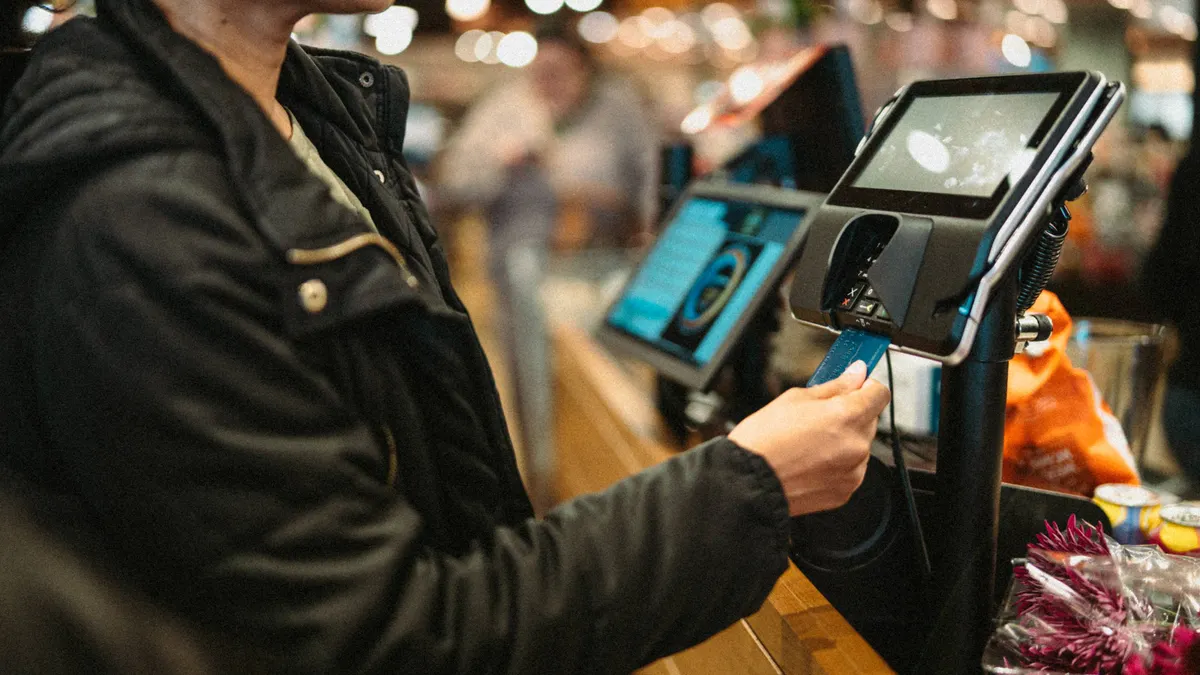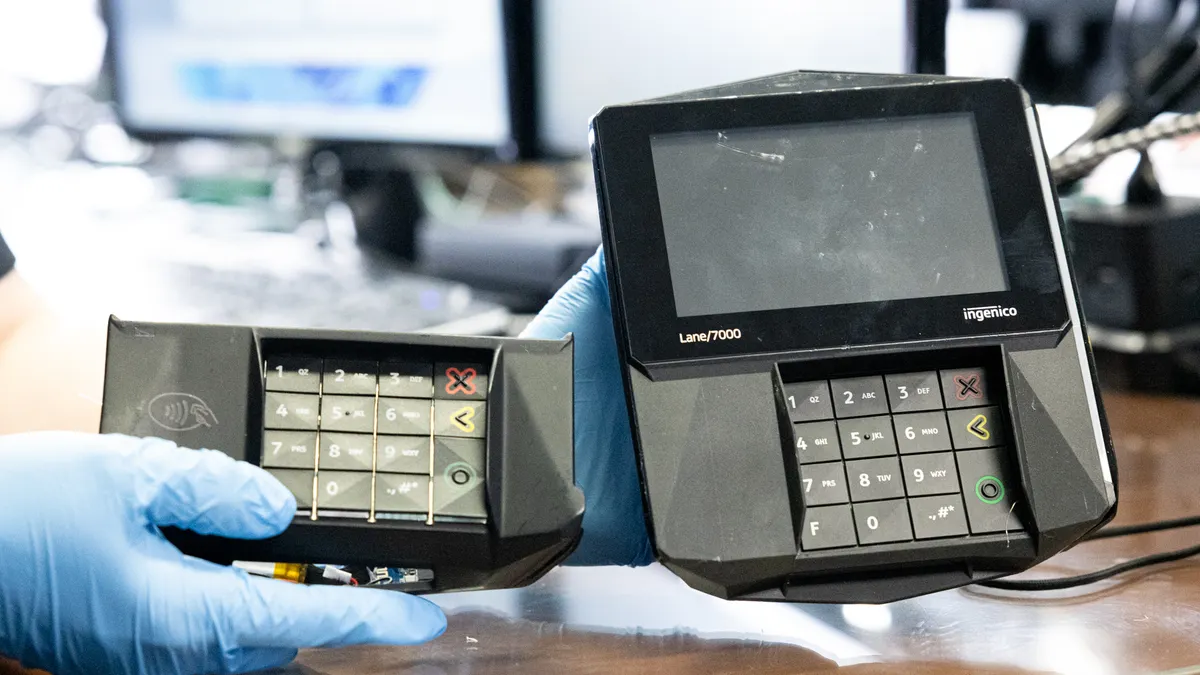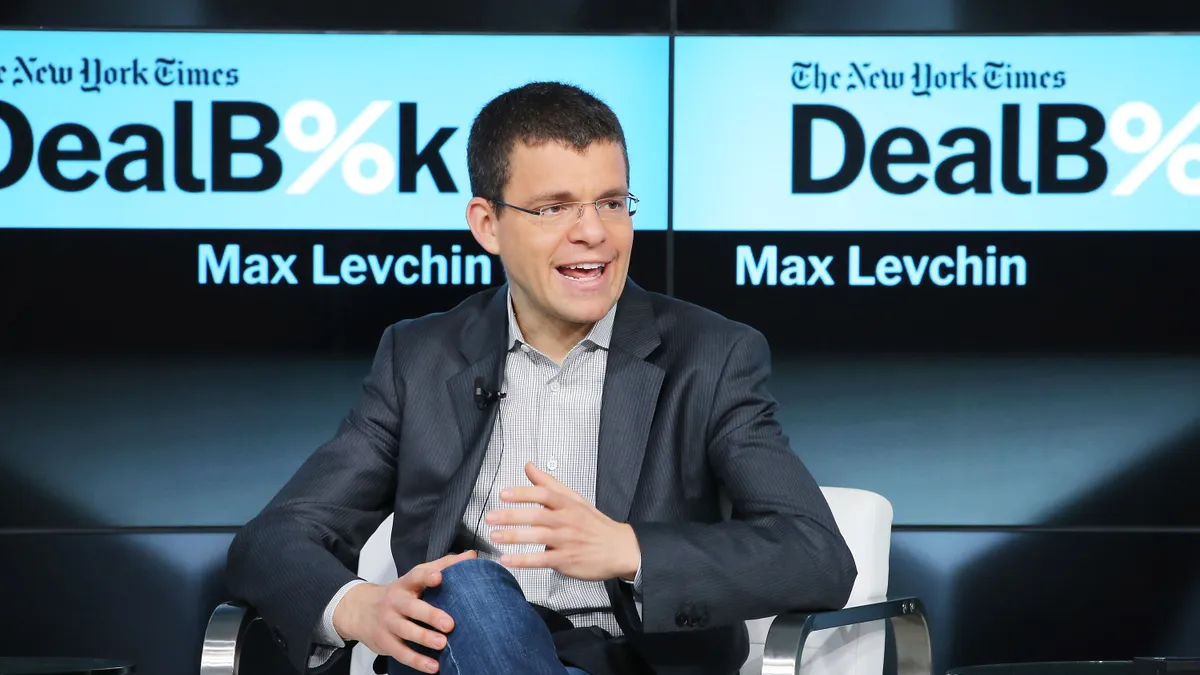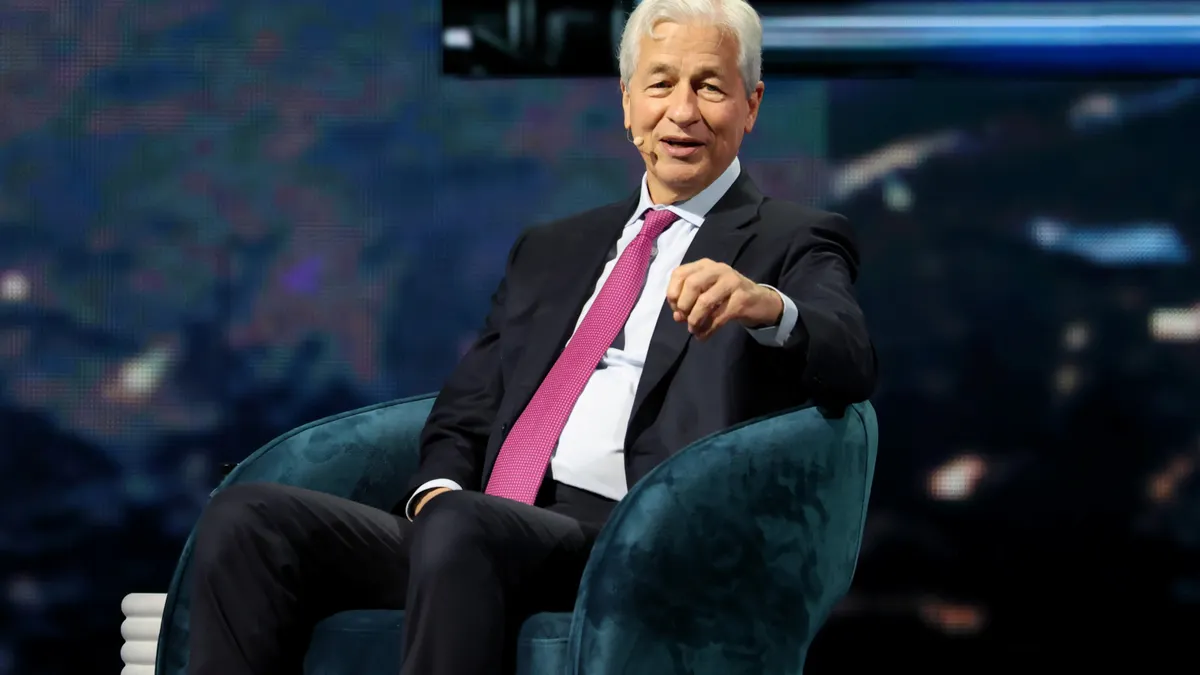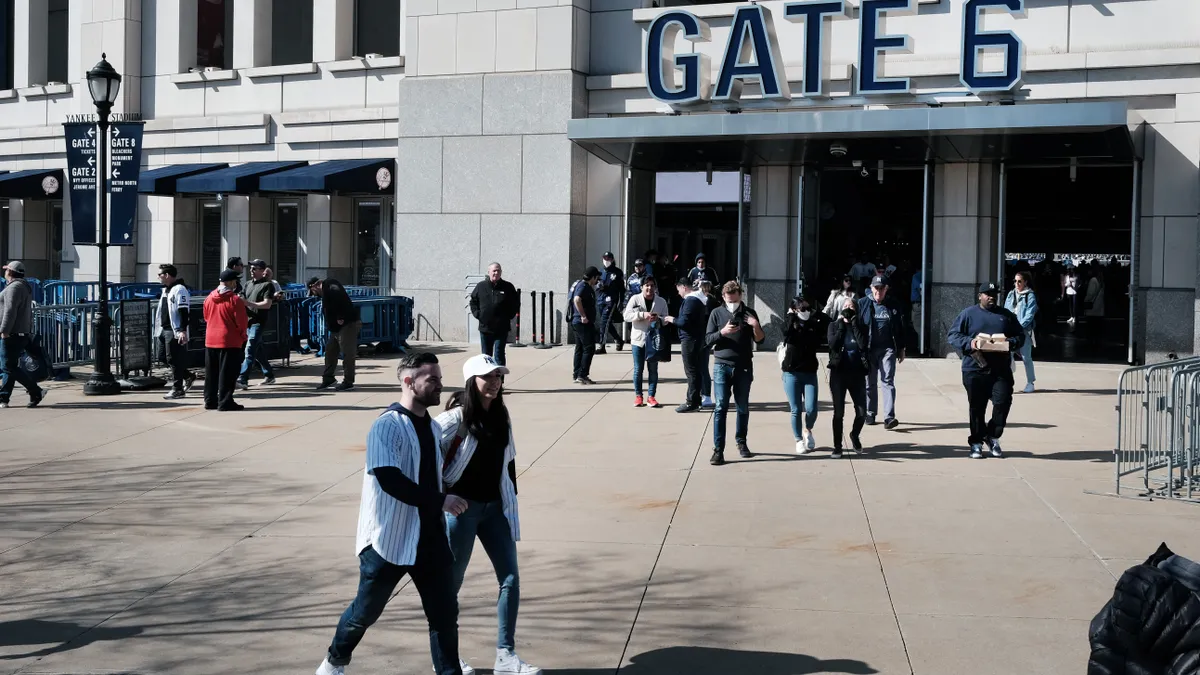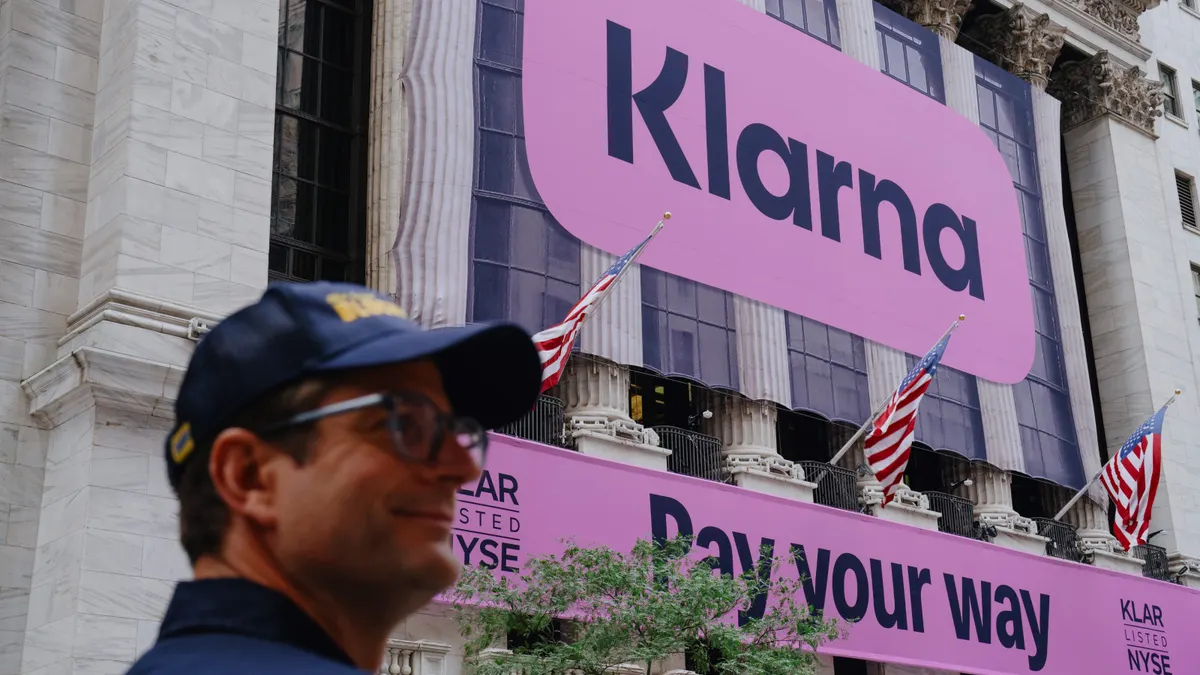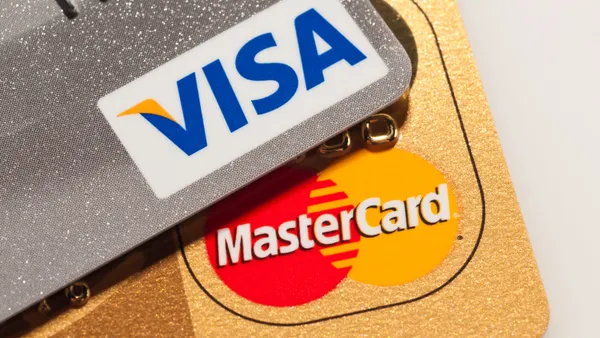Visa, the largest U.S. card network, and its No. 2 rival, Mastercard, took the Treasury Department’s new payments modernization initiative as an opportunity to pitch services.
The department embarked on the effort this year after President Donald Trump issued an executive order in March calling on the federal government to shift almost exclusively to using electronic payments by the end of September. That means ditching paper checks for U.S. payments as well as U.S. collections from taxpayers and others.
The Trump administration has pointed to several key benefits to pushing government payments into the electronic realm. Chief among them are increasing the efficiency of payments and reducing costs, but there was also an emphasis on reducing the impact of check fraud.
Despite the quick six-month timeframe, Treasury on May 30 asked the public for input on the federal government’s plan to modernize payments “to and from America's bank account.” It’s a major undertaking despite the fact that a large percentage of U.S. government payments already use electronic channels.
Before the June 30 deadline for interested parties to weigh in, Treasury got nearly 250 comment letters from companies, trade groups, individuals and non-profits.
A host of companies in the payments industry wrote to offer the government their advice and services. While fintechs like Modern Treasury, Plaid and Early Warning Services pointed to their technological chops as potentially being beneficial to Treasury in the transition, Visa and Mastercard tried to sell Treasury on their services.
Each of the networks submitted letters explaining how their singular knowledge and experience in the electronic payments realm might be of particular service to the government.
Purchase, New York-based Mastercard delivered a 15-page letter from Amanda Slater, a senior vice president and head of U.S. federal affairs for the card network. She played up the company’s past work for the government, contending that “more federal and state government benefit dollars are disbursed via the Mastercard network than any other brand.”
Mastercard plays a role working with partners to send $50 billion in benefits to millions to U.S. citizens by way of prepaid cards or digital disbursements every year, the letter said. The network helps provide those services via the government’s Direct Express prepaid card program delivering Social Security and Supplemental Security Income benefits and also through the government’s U.S. Debit prepaid card program disbursing non-benefit payments.
Slater advised Treasury to expand those two programs, as well as its Pay.Gov website that accepts digital payments, to respond to the latest executive order for moving remaining paper checks to digital forms. She also hailed Mastercard’s past work on those programs as making it a preferred candidate to assist any additional Treasury work.
Mastercard particularly stressed its track record in working with unbanked and underbanked consumers, noting how it could be effective in helping Treasury raise public awareness of the government’s latest push toward electronic payments.
The network noted that 14% of U.S. households, or about 19 million, are underbanked in that they have access to a bank account and yet rely on other payment methods like checks, and another four to five percent, or 5.6 million, are unbanked. Mastercard said its survey research showed that underbanked individuals tend to be younger, under the age of 43, so they are “tech-savvy,” but they aren’t part of “mainstream finance.”
It also used the letter to cast some doubt on the ability of less-experienced fintech players to meet the government’s needs. “Introducing new, unproven payment mechanisms is both unnecessary and incurs incremental risk,” she said in the letter.
Nonetheless, in its comments submitted to Treasury, the advocacy group Consumer Reports raised questions about the Direct Express prepaid card program and attached a laundry list of consumer complaints to its June 30 letter.
“Many consumer complaints have been submitted to the Consumer Financial Protection Bureau and Better Business Bureau about difficulties using the card and getting assistance from customer service,” said the letter from Chuck Bell, the group’s programs director for advocacy.
Bell noted that the CFPB sued Comerica over the Direct Express program last December for “systematically failing its 3.4 million Direct Express cardholders - primarily unbanked Americans receiving federal benefits.” Comerica worked with Mastercard on the program, but the card network wasn’t named in the lawsuit.
The CFPB alleged Comerica deliberately dropped some 24 million consumer calls to its customer service lines and illegally charged one million consumers for ATM fees, among other allegations in the complaint. The CFPB reversed course and dropped the lawsuit in April after the Trump administration began to shutter the agency by cutting its staff and funding and abandoning its former mission.
“While we appreciate that complaints are inevitable for any consumer-facing business, the large volume of complaints directed to CFPB, the Better Business Bureau and other third parties do not inspire confidence that the Direct Express card provided timely solutions to the difficult problems experienced by customers relating to technical glitches, misrouted or lost funds, payment fraud, and non responsiveness and unavailability of customer service itself,” Bell wrote.
Bell specifically noted the trouble for senior citizens that digital payment programs can prompt and pointed out that fraud isn’t confined to paper checks – it’s also a digital problem.
“The extensive risks of electronic payment fraud and the difficulties in resolving it need to be considered on an equal footing with the risks of paper check fraud,” Bell’s letter said.
In response to a request for input on its role, Mastercard sidestepped directly commenting on the complaints. “We’re proud of our many partnerships – such as Direct Express and GSA SmartPay – and the value they have delivered for the U.S. government and Americans,” a spokesperson for the network said. “We look forward to the opportunity to bring new technologies and this proven experience to future programs.”
Like Mastercard, San Francisco-based Visa used its letter to Treasury to angle for more business, beyond its existing involvement in the U.S. debit and prepaid card programs for non-benefit payments. Like Mastercard, it underscored its ability to fight fraud and provide security in payments.
“Visa is also uniquely positioned to help Treasury with both digital disbursements and receipts by virtue of our product offerings, capabilities, partnerships and connectivity to thousands of financial institutions,” the eight-page letter from Visa Associate General Counsel Ky Tran-Trong said.
It’s not clear what Treasury’s next move will be in hiring contractors to advance the shift to electronic payments. The department said it’s particularly interested in how to build a public awareness campaign for moving the unbanked and underbanked to digital payments, but time is running out if the government wants to have an impact by September.


